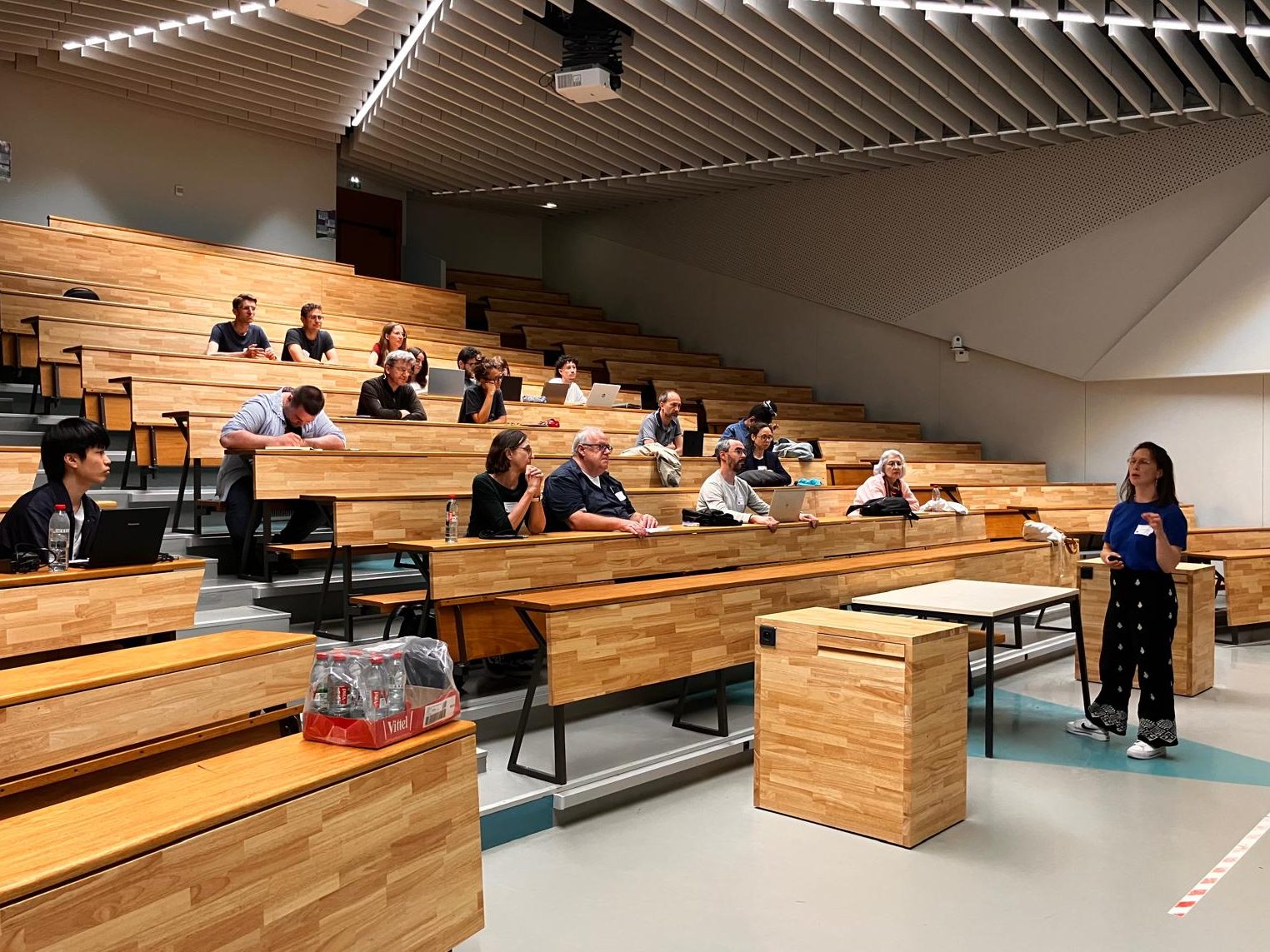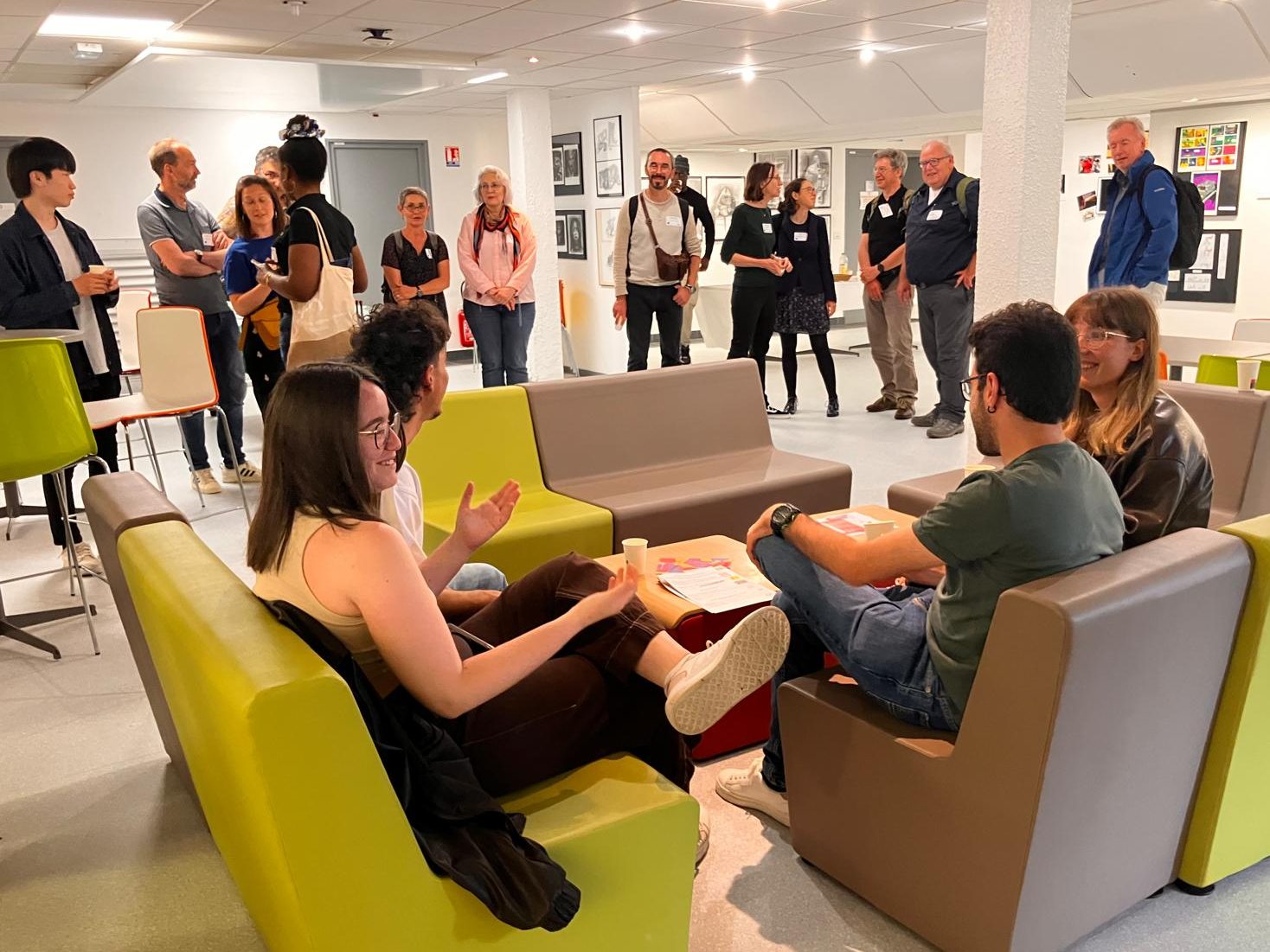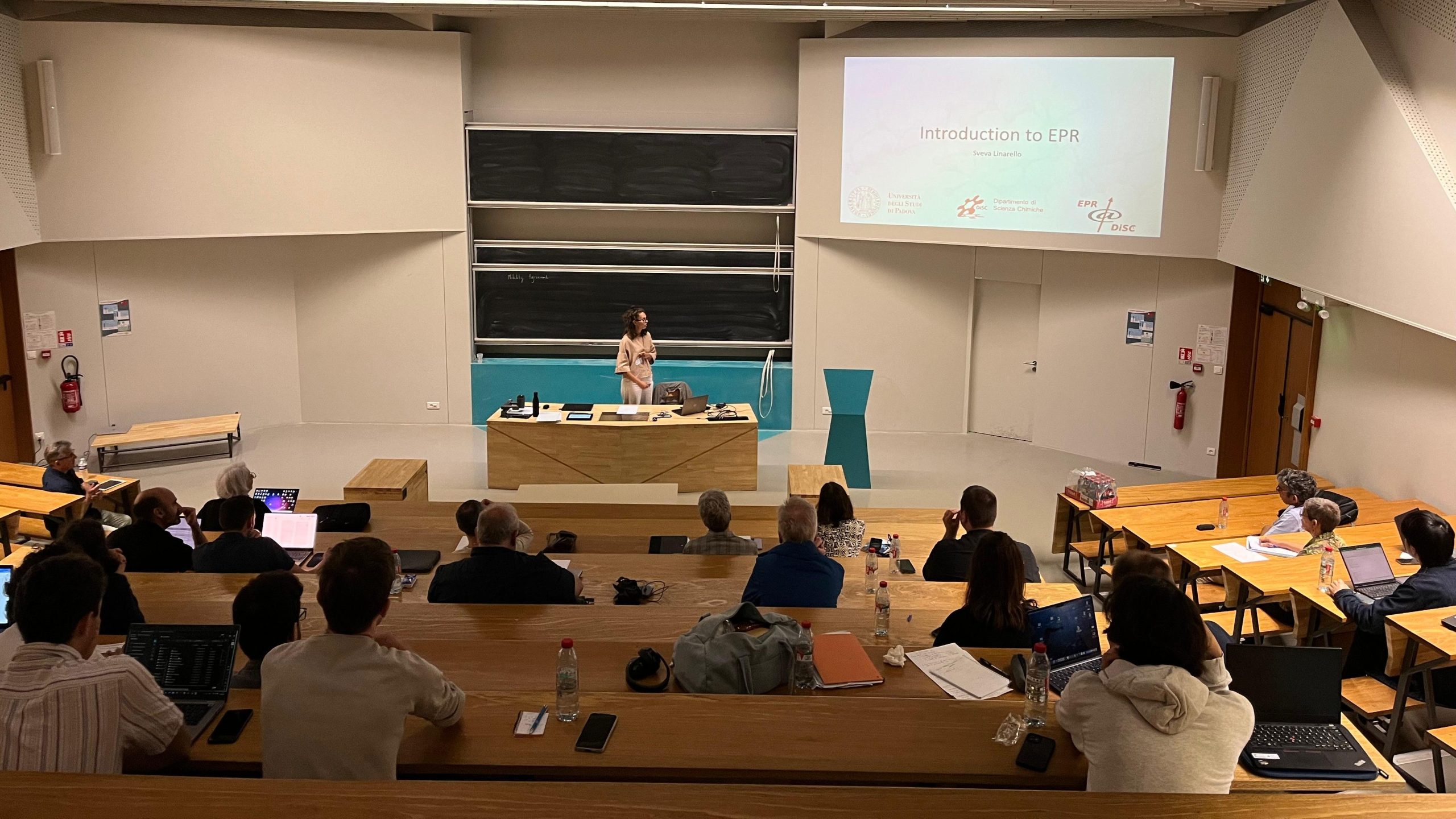The University of Lyon 1 hosts the BIP “Training in advanced sustainable metal-organic materials”
|
04 Jun 2025|
04 Jun 2025This week, the Blended Intensive Programme “Training in advanced sustainable metal-organic materials” is carrying out its face-to-face phase at the University of Lyon 1.
PhD students and academic staff from partner universities are participating in workshops and lectures from 2 to 6 June 2025. This BIP provides a multidisciplinary training in the field of metal-organic materials, including organic chemistry, coordination chemistry, solid-state chemistry, property characterisation and structural and computational chemistry.
Coordinated by the University of Lyon 1, this BIP brings together 5 Arqus universities: Granada, Graz, Leipzig, Lyon 1, Padua, as well as the universities of Jaén (Spain) and Sabancı (Turkey). This interdisciplinary training aims to empower participants with multidisciplinary fundamental knowledge to drive top-level research in the field.


This Blended Intensive Programme held a virtual training session on 6 May and will finish with another on 24 June. By combining online learning and short in-person mobilities, participants deepen their knowledge in a collaborative and international environment.
At the end of the BIP, participants will be able to better understand the different scientific aspects of the field, facilitating the sharing of knowledge and expertise well beyond their own. This will stimulate, induce and eventually support future research activities. Students will receive 3 ECTS credits, and all participants will obtain a certificate of participation and achievement.

BIP “Training in advanced sustainable metal-organic materials” programme
A new call for Arqus BIPs is open right now for 2025-26 projects, read more about it here.
Blended Intensive Programmes (BIP) combine a short-term physical mobility abroad with a compulsory virtual component, facilitating a collaborative online learning exchange and teamwork. BIPs are developed and implemented by at least 3 partners from Erasmus+ programme countries, and in this case, at least 2 universities from the Arqus Alliance.